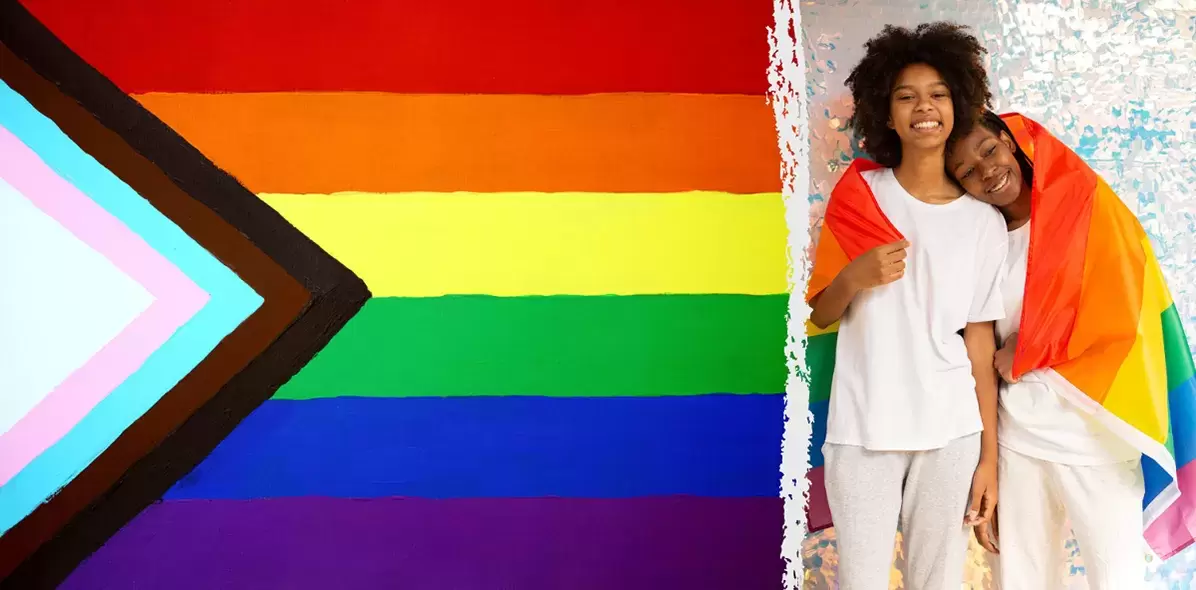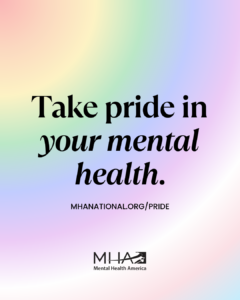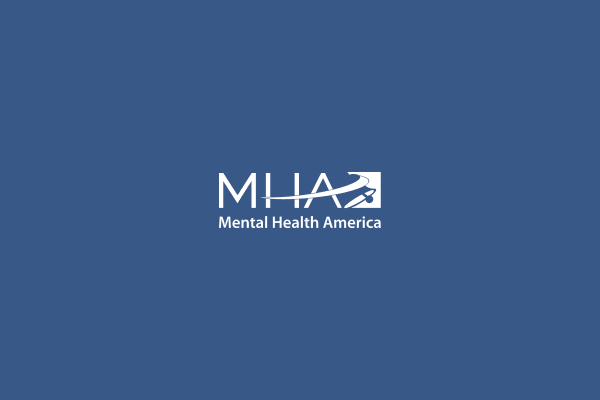
Anti-trans legislation, hate-based crimes, and discrimination shouldn’t overshadow Pride, but they can’t be ignored. We hope those struggling with their identity or living in unsupportive environments find these resources helpful to living a life of well-being and resilience.
 Find more resources in our LGBTQ+ Resource Center
Find more resources in our LGBTQ+ Resource Center
Get access to coming out guides, mental health resources for transgender individuals, and more in our LGBTQ+ resources.
Learn more about LGBTQ+ communities and mental health
 Intersex identities and mental health
Intersex identities and mental health
 Neuroqueer identities and mental health
Neuroqueer identities and mental health
 Additional resources
Additional resources
How do I feel comfortable in my body?
What do I say if I’m misgendered?
Good news in the LGBTQ+ community
Graphics and Shareables
Advocate for LGBTQ+ mental health on social media
Don’t forget to tag us!
IG: @mentalhealthamerica | Twitter: @mentalhealtham
Facebook: mentalhealthamerica | LinkedIn: mental-health-america
Download & share these images:




Or share the following messages:
- Being your authentic self is one of the best ways to protect your #mentalhealth. As we celebrate #PrideMonth, learn more and find resources from Mental Health America: mhanational.org/pride ?️?
- Being transgender isn’t a #mentalhealth condition, but the trans community faces higher rates of mental health challenges than any other LGBTQ+ identity group. Learn more and find resources from Mental Health America: mhanational.org/pride ?️
#PrideMonth
- If you’re a #mentalhealth care provider, it’s crucial that you understand what gender-affirming care really is. Learn more and find resources from Mental Health America: mhanational.org/pride ?️? #PrideMonth
- Being LGBTQ+ isn’t easy in today’s climate. If you’re struggling, you’re not alone. Take a free #mentalhealth test at mhanational.org to find out if you’re experiencing symptoms of a mental health condition. #PrideMonth
- Reflecting on your gender can be an uncomfortable process and bring up challenging feelings. If you’re struggling, you’re not alone. Check in on your #mentalhealth at mhascreening.org. #PrideMonth
- If you or an LGBTQ+ individual you know is struggling or in crisis, help is available. Call or text 988 or chat 988lifeline.org. You can also reach a trained counselor at The Trevor Project at 866-488-7386 and Trans Lifeline at 877-565-8860.


